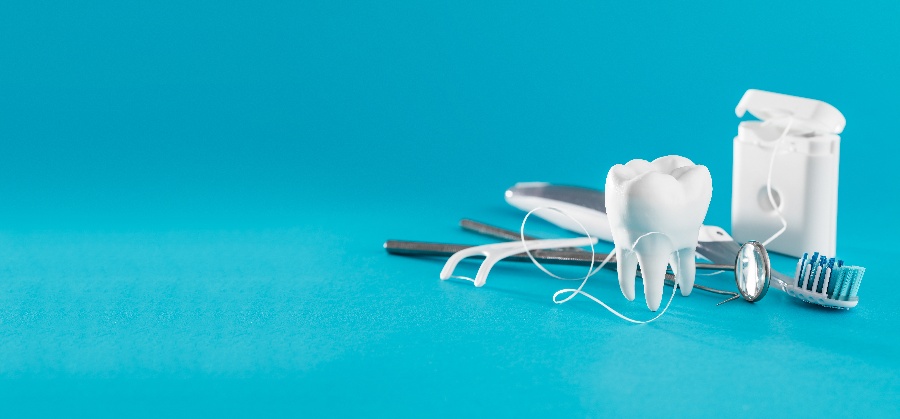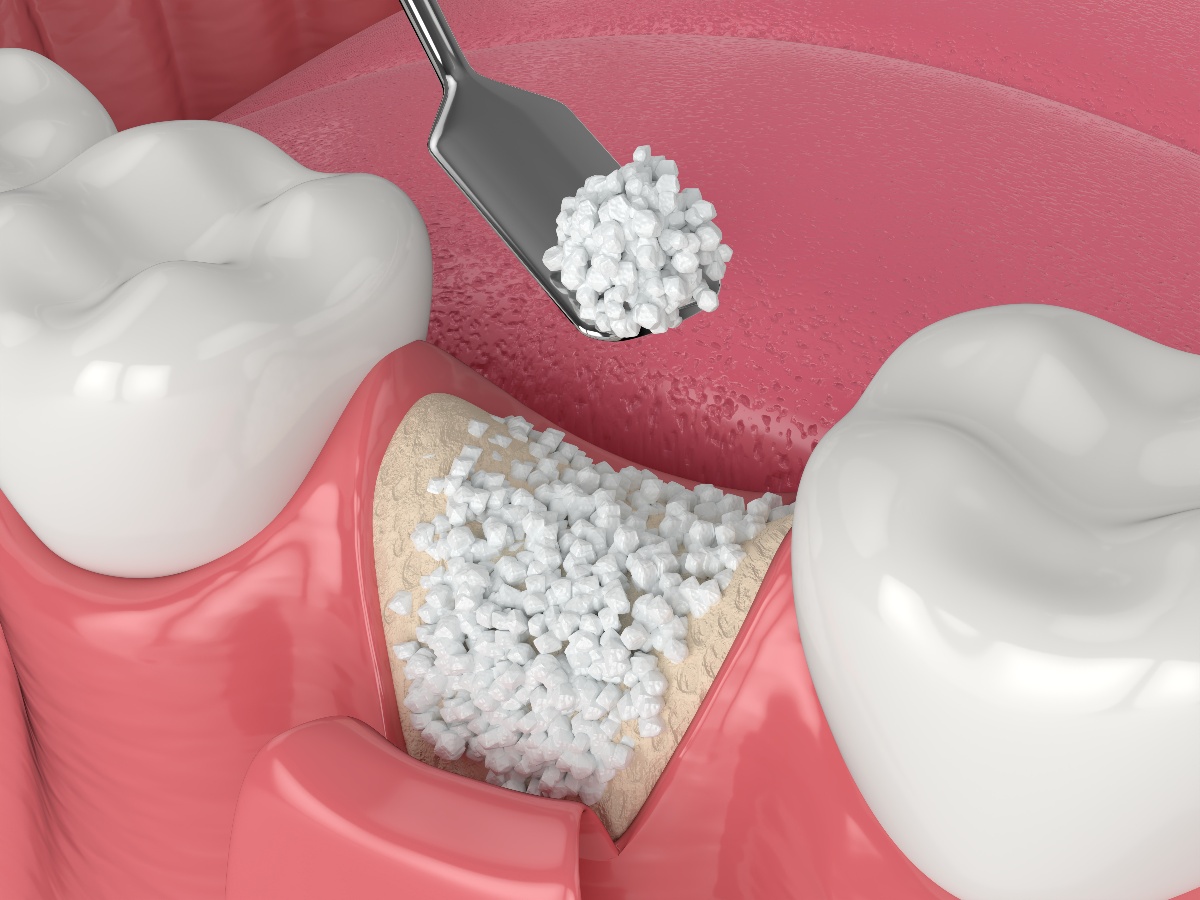Millions of people each year transform their smiles with dental implants. While traditional treatments are still available, dentists typically recommend implants as the preferred choice to replace missing teeth.
Besides looking and feeling like natural teeth, implants have the advantage of easy maintenance. However, just like all aspects of your health, there are steps you can take to avoid problems.
Here are six tips to help you care for your implants so that you can enjoy them for many years.
1. Immediate Postoperative Aftercare
The time immediately following implant placement is crucial to the long-term success of your treatment. During this time, osseointegration occurs, a fusion of the implant with the bone in your jaw. Although osseointegration begins with implant placement, it can take a few months to complete.
Osseointegration is possible because titanium, the most popular implant material, is biocompatible. This allows an interlocking of the healthy bone with the implant to form a solid foundation for your dental restoration. To ensure your implant’s success, it is critical to closely follow the postoperative instructions given to you on the day of implant surgery. Typically, these instructions include that you:
- Maintain light pressure to control bleeding if your dentist places gauze on the surgical site.
- Avoid rinsing your mouth for the first day.
- Place an ice pack on the cheek adjacent to the implant.
- Drink plenty of water to stay hydrated.
- Avoid strenuous activity for several days.
- Eat a soft diet.
- Maintain proper oral hygiene.
- Do not smoke.
- Avoid foods and drinks of extreme temperatures.
- Get plenty of rest.
2. Choosing the Right Toothbrush
Once you return to your regular oral hygiene routine after implant surgery, you will want to use the right toothbrush. Although some studies show that you can clean around implants better with a sonic toothbrush, manual brushes can also be used effectively. Your dentist may recommend a manual brush for the first few weeks after you receive your implant. Here are some best practices to enhance your toothbrushing:
- Use a nylon soft-bristled toothbrush. Hard bristles can damage your gums, natural teeth, and implants. Soft bristles are more pliable and able to reach between teeth better.
- Brush at least twice daily. Brushing twice daily helps prevent oral bacteria from causing inflammation around your implant. It also prevents any accumulated plaque from hardening into tartar.
- Brush for two minutes. The average person brushes for about forty-five seconds each day. This is inadequate for keeping natural teeth clean and especially insufficient if you have dental implants. Studies have shown that brushing for two to three minutes removes plaque and prevents gum inflammation.
3. Avoiding Abrasives
Titanium dental implants are resistant to corrosion, strong, durable, and made to last a lifetime. Although more scratch-resistant than dental cementum that covers tooth roots, titanium is not inherently scratch-proof. Just like other metals, it is possible to place microscopic scratches in titanium that eventually become visible.
You can avoid scratching your implants by gently brushing using a circular motion and avoiding using highly abrasive oral hygiene products. However, this can be challenging since most toothpaste contains abrasives, such as silica and its derivatives, which are added to toothpaste to increase their efficiency in removing dental plaque and removing surface stains. Whitening toothpaste, especially those containing charcoal, typically is the most abrasive and potentially harmful to dental implants and tooth enamel.
4. Flossing At Least Once Each Day
Less than half of the adults in America floss every day. One survey found that more than one-fourth of adults are less than truthful with their dentist about how often they floss. Unquestionably, flossing is critical for keeping gums healthy around your natural teeth.
The effectiveness of conventional flossing around dental implants is questioned. However, what is not in doubt is that periodontal infection, known as peri-implantitis, is the leading cause of implant failure. This occurs when dental plaque accumulates around the junction of the implant with your gums. Since brushing does not entirely remove this plaque, you must rely on other measures to prevent peri-implantitis.
The controversy around flossing implants has to do with the type of floss and technique used. You should consult with your dentist about what is recommended for keeping the gums around your implant free of bacterial infection. Here are some general guidelines:
- Use an unwaxed, tape, or implant-specific floss.
- Do not floss aggressively, and make sure no floss shreds around the implant.
- Ask your dentist about using interdental brushes to help remove plaque from your implants and between teeth. Some studies show that interdental brushes are slightly more effective in removing plaque than dental floss. Since these brushes come in different sizes, ask your dentist to recommend the appropriate size to clean around your implant.
- Consider using an oral irrigator. Also known as a water flosser, devices such as a Waterpik effectively dislodge food debris and remove plaque around dental implants. Some dentists recommend using antimicrobial solutions such as chlorhexidine gluconate with oral irrigators for added benefit.
5. Do Not Smoke
Smoking and using other tobacco products adversely affect oral and general health. Many implants are placed as a result of tooth loss due to periodontal disease caused by smoking. Unfortunately for smokers, continuing to smoke poses a 140.2% higher risk of implant failure than non-smokers.
Smoking is not the only habit that has negative consequences for implants. Other habits to avoid that can help you maintain your implants include:
- Ice chewing
- Consuming alcohol.
- Bruxism (teeth grinding without the protection of a nightguard).
- Eating excessively hard or coarse foods.
- Chewing nonfood items such as fingernails, pens, or pencils.
6. See Your Dentist Regularly
Dental implants are designed to be permanent. However, properly maintaining them is essential for a long lifespan. The most significant threat to the success of implants is gum inflammation which leads to infection. Regular dental examinations and professional teeth cleaning can often detect and treat inflamed gums before they jeopardize the health of your implant.
Schedule an Appointment
Our team of oral health professionals can help you have the smile you have always wanted with restorative, cosmetic, and dental implant services. We deliver leading-edge treatments using the most advanced techniques and dental materials. Contact us online or call us to learn more about how Palmetto Dental Arts can help you maintain optimal oral health and a bright smile.






